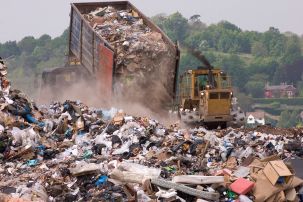Lesson summary
The students play a card game to apply their understandings of the 4Rs.
Learning intentions:
Students will...
- recognise that by using the 4Rs, we can all cut the amount of solid waste we produce.
Lesson guides and printables
Lesson details
Curriculum mapping
Australian Curriculum content descriptions:
Year 3 English:
- Understand that successful cooperation with others depends on shared use of social conventions, including turn-taking patterns, and forms of address that vary according to the degree of formality in social situations (ACELA1476)
Year 3 Science:
- A change of state between solid and liquid can be caused by adding or removing heat (ACSSU046)
- Science knowledge helps people to understand the effect of their actions (ACSHE051)
Year 4 Science:
- Science knowledge helps people to understand the effect of their actions (ACSHE062)
Year 4 Geography:
- The use and management of natural resources and waste, and the different views on how to do this sustainably (ACHASSK090)
Syllabus Outcomes: GE2-3, ST2-11LW, ST2-12MW, EN2-1A.
Time required: 60 mins
Level of teacher scaffolding: Medium – lead discussion on the 4Rs and direct game.
Resources required
- Card, scissors, one 4Rs game worksheet for each group
- Student Worksheet – one copy per student OR computers/tablets to access the online worksheet
Additional info
This is an original Cool.org lesson. Facts and figures in these lessons may have changed since this lesson was published. We always endeavour to update our resources in a timely manner, but if you see an error or issue in our resources please get in touch with us.


Welcome back!
Don't have an account yet?
Log in with:
By signing up to Cool.org you consent and agree to Cool's privacy policy to
store, manage and process your personal information. To read more, please see
our privacy policy here(Opens in new tab).
Create your free Cool.org account.
Many of our resources are free, with an option to upgrade to Cool+ for premium content.
Already have an account?
Sign up with:
By signing up to Cool.org you consent and agree to Cool's privacy policy to
store, manage and process your personal information. To read more, please see
our privacy policy here(Opens in new tab).